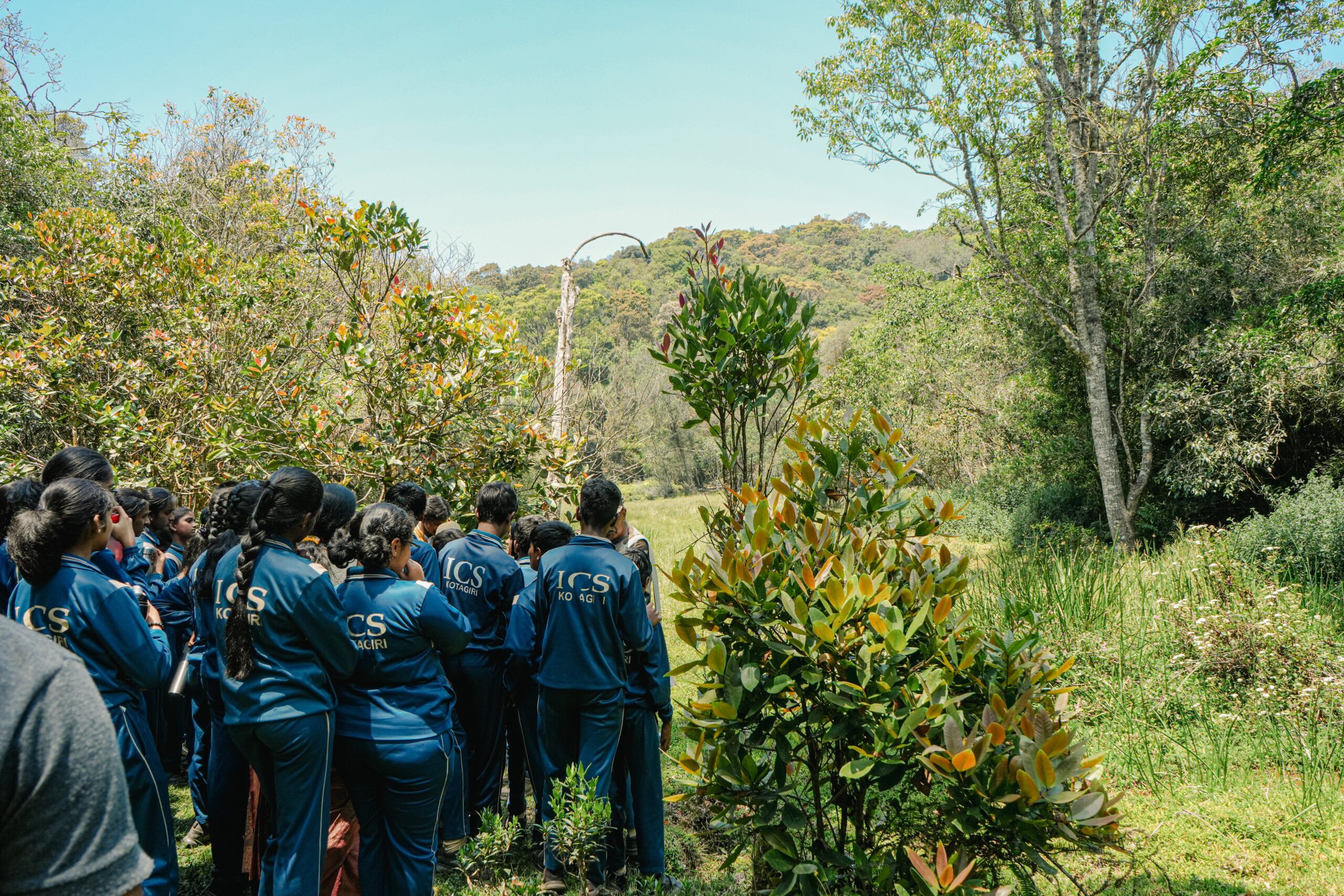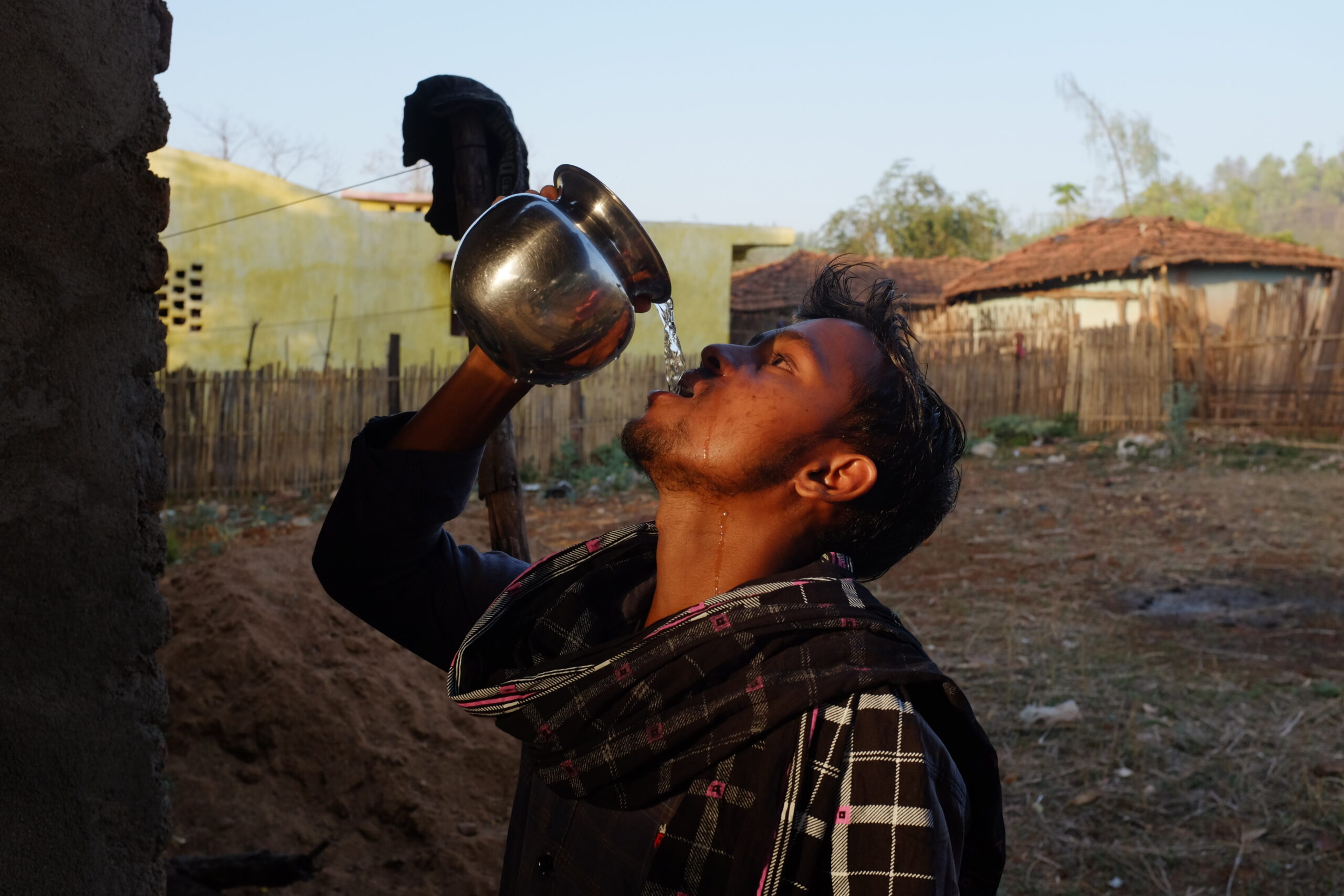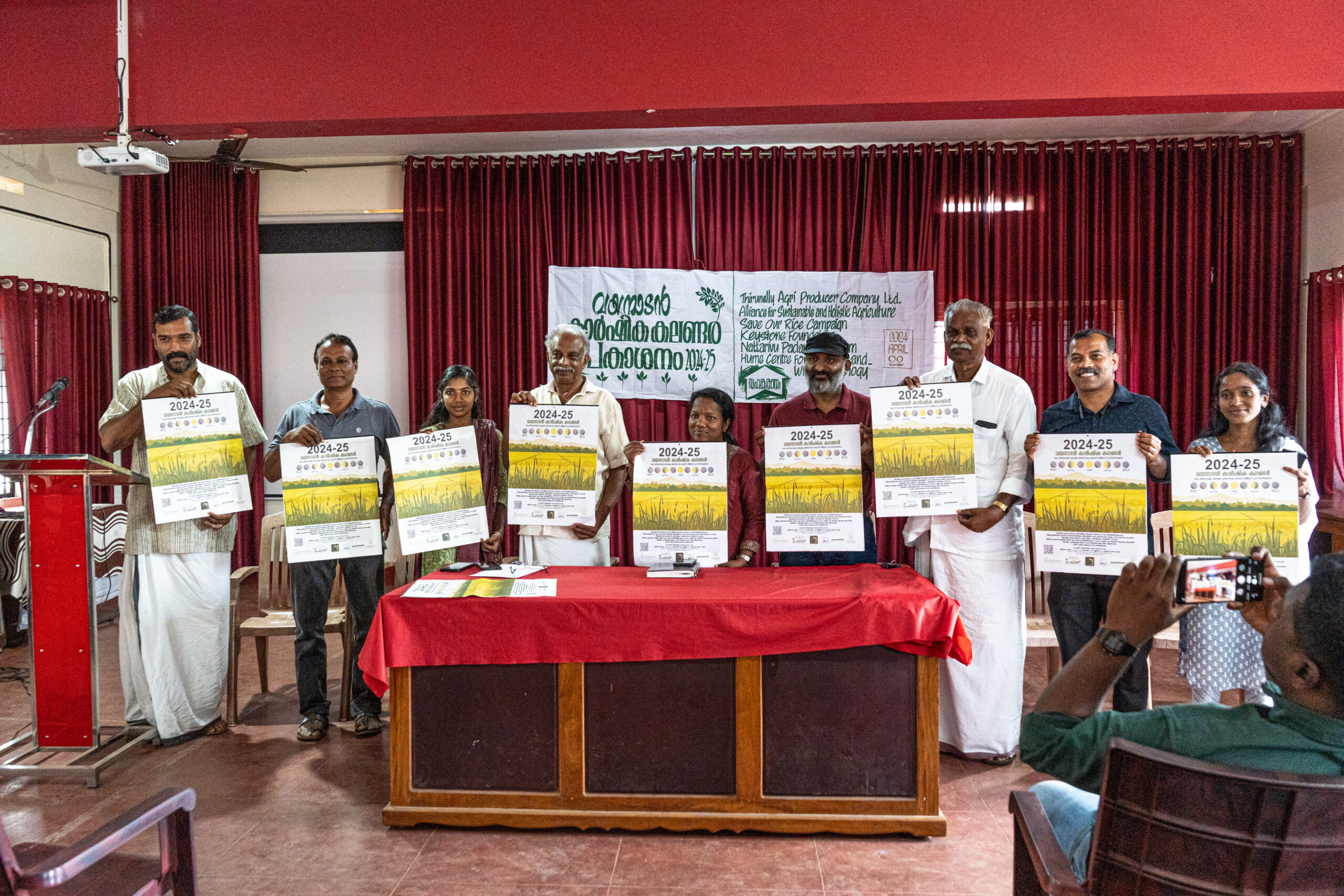April 13, 2023
By Anna Norrby Andersson & Emelie Svensson
Swallows Fellows, Climate Change
On April 12 and 13, 2023, eight educators from Kotagiri, Sigur and Nilambur were invited to the Keystone Foundation campus to participate in a two-day workshop. The workshop, held by Keystone staff from the Climate Change Programme, was part of the ongoing project Climate Smart Schools. The project works to bring climate education to rural communities in the Nilgiris through continuous training of local educators that bring their knowledge to schools in the area. So far, 14 schools have joined this project.
The first day centered around tracking the progress of the Climate Smart Schools so far, as well as going through future lesson plans. These are developed by the Climate Change team at Keystone, further built upon after feedback from the educators. Materials like activity sheets, experiments and audit reports are produced by the Climate Change team.
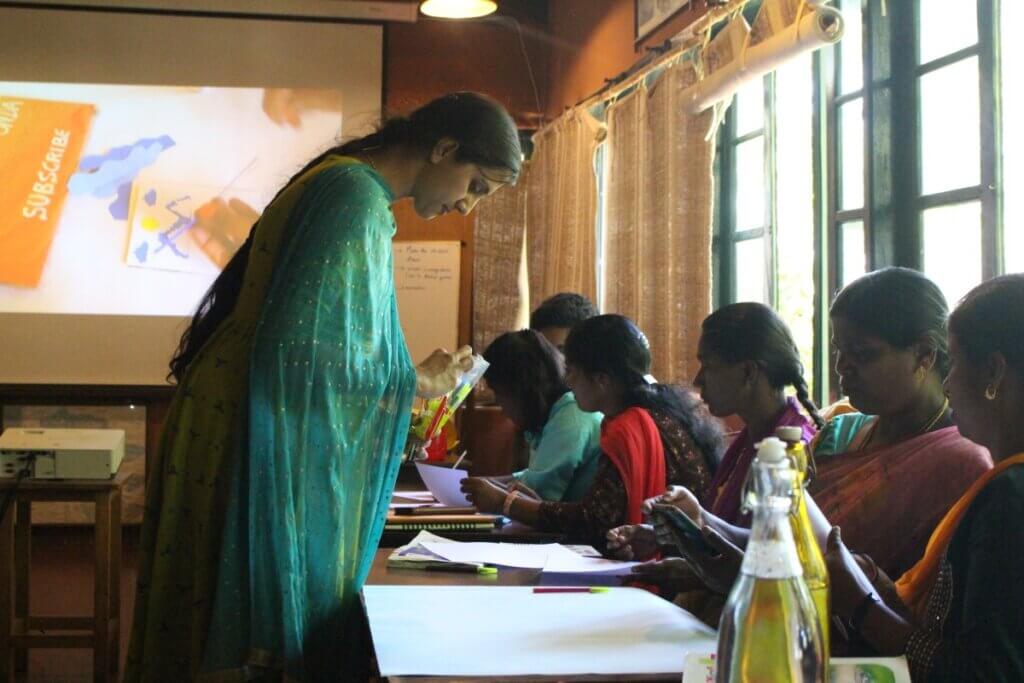
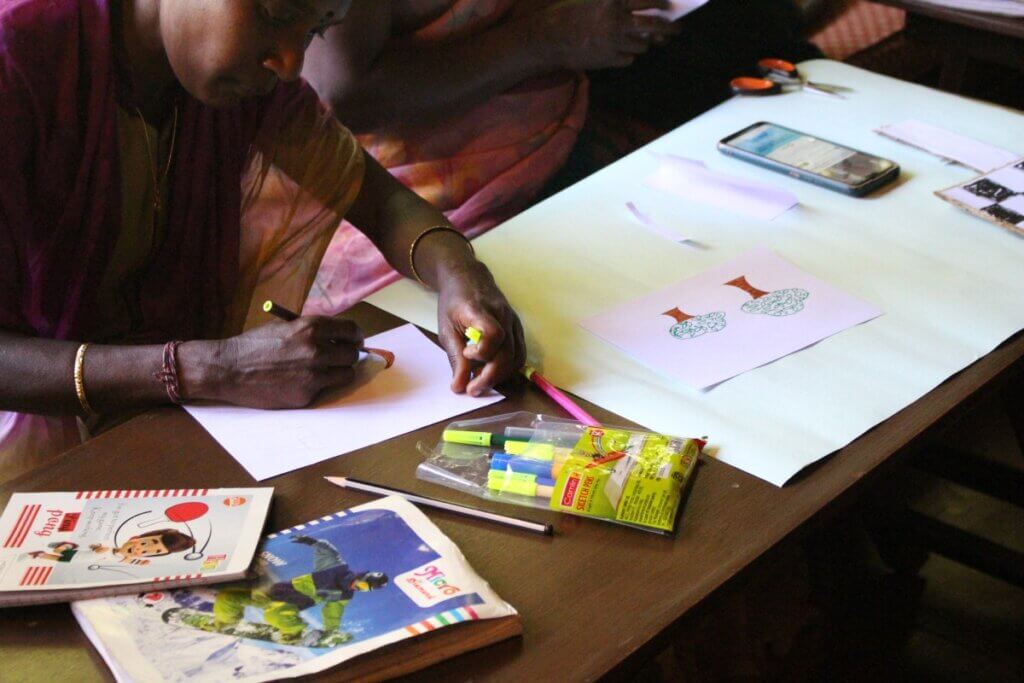
Participants working to create models of water cycles, biodiversity, energy and electricity.
The second day started with a session held by Harsha from the Biodiversity Conservation team, on the topic of restoration and its importance for climate change. Participants got a chance to reflect on potential restoration methods through group discussions, which they can bring with them in their interactions with students. A second session on plant communication was held by Climate Change intern Reshma. Through illustrations and hands-on activities, Reshma described how plants can alert each other to threats such as droughts. Climate Change intern Emelie held a technology workshop, designed according to the educators’ requests, and topics on how to navigate the internet were discussed.
To ensure effective communication with the educators, the workshop was conducted primarily in Tamil, with Vidya from Keystone Foundation hosting the workshop and providing translation for the English parts, ensuring that all participants could fully engage in the workshop.
The response and feedback from the educators after the workshop were positive, with participants expressing that the workshop was interesting and easy to understand. They particularly enjoyed the hands-on components, such as building models, which can be used for inspiration in their future sessions with students. In conclusion, Keystone Foundation’s Climate Smart Schools workshop was a successful attempt to empower educators with the necessary tools and knowledge to integrate climate change education into their curriculum.


